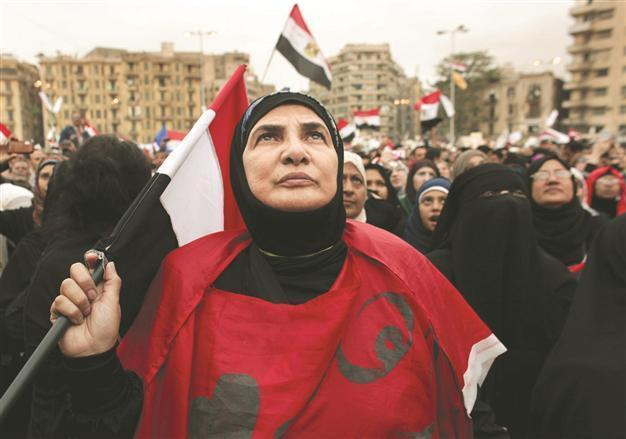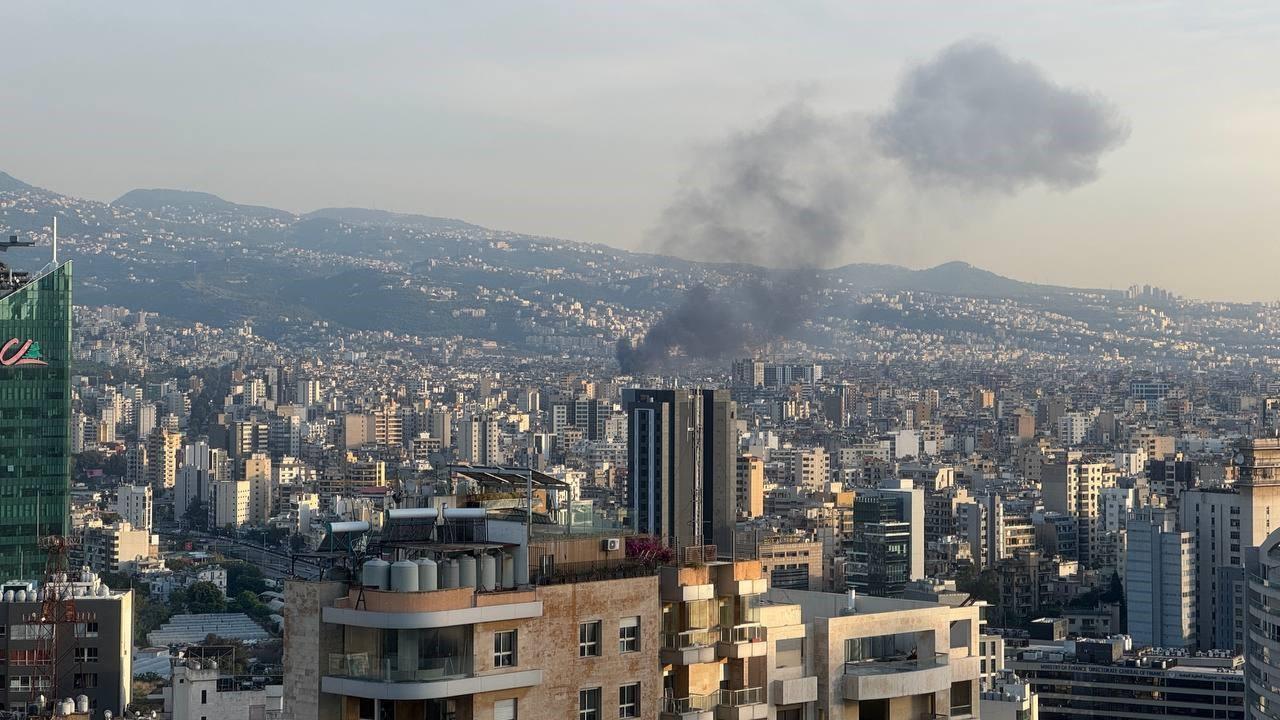Egyptian women still face abuse of rights despite laws
CAIRO - The Associated Press

An Egyptian woman holds a national flag as she listens to speakers during a protest calling for the ouster of President Morsi in Tahrir Square in this 2012 photo. AP Photo
Women activists say they won a major step forward with Egypt’s new constitution, which enshrined greater rights for women. But months after its passage, they’re worrying whether those rights will be implemented or will turn out to be merely ink on paper.The causes for concern are many. Men hold an overwhelming near-lock on decision-making in politics, and activists say they are doing little to bring about equality. Violence against women in public space has grown over the past three years of turmoil since the 2011 ouster of Hosni Mubarak. And some activists say the increasingly repressive political climate is stifling chances for democratic reforms that would bring women’s rights.
‘Appropriate’ clothing
An incident in March underlined how far activists say they still need to go to change public attitudes. After a female student at Cairo University came under mass sexual assault by male students, the university’s president, Gaber Nassar, criticized her for the way she was dressed.
A well-known TV presenter, Tamir Amin, went on a tirade on his show, saying the student was “dressed like a belly dancer.” She was wearing black pants, a long-sleeved pink shirt and a head-scarf. Amid an uproar on social media, both Nassar and Amin apologized for their comments. But Amin still went on to say women should wear “appropriate” clothing when they go out.
Women have also been caught up in the violence since the military ousted President Mohamed Morsi last summer and security forces launched a heavy crackdown on Muslim Brotherhood. Last weekend, a 22-year-old female journalist, Mayada Ashraf, with the newspaper Al-Dustour, was shot to death while she covered clashes between police and Morsi supporters in Cairo. Police have arrested 20 protesters, accusing them of shooting her, but witnesses have raised questions whether it was actually security forces who killed her.
Around 50 other women were among hundreds killed during clashes since the violent dispersal of the pro-Morsi protest camps on Aug. 14, and around 240 are among the 16,000 people arrested in the crackdown on Morsi’s followers. Violence is a “very intimidating weapon” against women participating in public life, said Dalia Abdel-Hameed, gender rights researcher with the Egyptian Initiative for Personal Rights, an independent rights group. More broadly, the crackdown has fueled at atmosphere where criticism is not tolerated. Secular pro-democracy activists and prominent figures critical of the military-backed interim government have been jailed and are on trial for breaking laws barring unlicensed protests. In the media, critics of the government are muted, which has an impact on calls in general for democratic reform, including for women’s rights.
“If there is no democratic climate, how would you benefit from these beautiful laws?” said Abdel-Hameed. There have been multiple mass sexual assaults on women during protests the past three years. In one notorious incident in 2011, security forces dragged a female protester to the ground, pulled up her top to reveal her blue bra and stomped on her chest. Other female protesters at the time were forced to undergo humiliating “virginity tests” when detained by the military.
Women activists fought hard for gains in the constitution passed in a January referendum, which was a rewrite of a 2012 constitution largely drafted by Islamists during Morsi’s one-year presidency. The document explicitly enshrines equality between the sexes and women’s rights to education, work and high political office. It criminalizes violence against women and discrimination on any basis, including gender. It allows women to confer nationality on their children and holds Egypt’s government responsible for international obligations under treaties it has ratified.
Women have only been allowed to be judges since 2007, and the new constitution guarantees their right to hold high positions in the judiciary. Yet a 2010 court decision barred women judges from the State Council, a powerful judicial body that regulates disputes between individuals and the state and reviews legislation.
After several women were rejected for membership on the council, Mervat Tallawy, head of the state’s National Council for Women, said that in January she wrote to the State Council demanding it take on women judges in light of the constitution.
The Council replied by saying her letter “violated appropriateness and manners” and it sought criminal action against the National Council for Women. Speaking to a conference last month, Tallawy said the “the mentality of the decision-makers in the current government and the future government as well” is the main obstacle to the carrying out the promises of the constitution.
She pointed to the low representation of women in government. Women, for example, held only two percent of the seats in the last Parliament, the lowest in the Arab world. Past parliaments as well have usually seen single-digit percentages of women lawmakers.
















